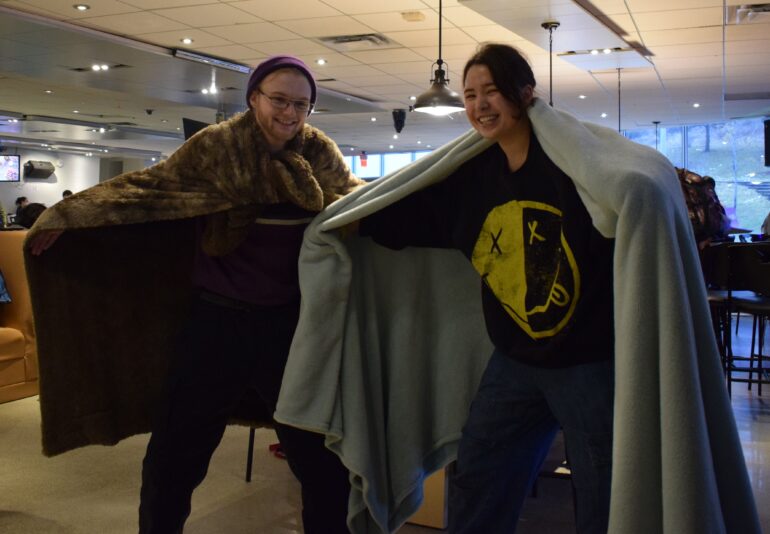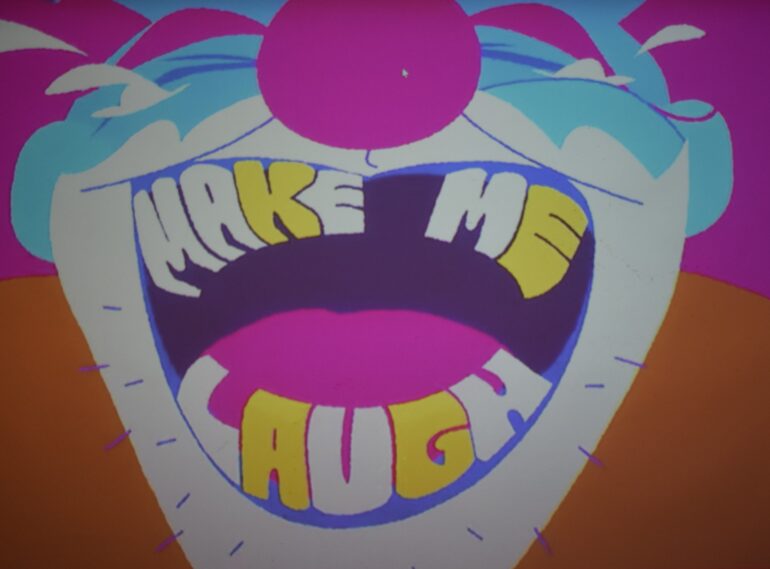Students crouched around brightly lit laptop screens to brainstorm ideas late into the day. Some packed sleeping bags in preparation for the two nights in the LinX Lounge at Humber College’s North campus to develop themed gaming programs.
Staff and students participated with fervour in the 10th annual Global Game Jam marathon held between Jan. 26 and Jan. 30 on campus.
But for many, it was all work and no play.
The 48-hour create-athon entailed gaming prototypes created by students to be tested and judged by Humber faculty.
The winners will be recognized and celebrated, but there is no prize, and the event is not a competition.
The mystery theme for each year is revealed at the event, keeping all the participants on the edges of their seats. This year’s theme was “Make Me Laugh.”
Students from all programs were welcome to attend the event, but most come from the Game Programming Advanced Diploma program, or simply, GAME.
Attending the Global Game Jam event is highly recommended by faculty, and GAME students must submit a reflection assignment about their experience.
While there isn’t a requirement to attend, many students find their stride working side-by-side with aspiring programmers and animators.
“It’s not fun, it’s not work, and it’s not school,” said Sam Sousa, a second-year GAME student. “It’s a combination of all three.”
Game Jam events are often perceived as a way to portfolio materials and experience-based work environments.
The most important takeaway for the students is learning to work together and collaborate with their peers. They gain key teamwork skills that would help them in their careers.

Humber professor Scott Fielder taking a break from GGJ 2024 to chat and watch hockey. Photo credit: Liv Chug
Scott Fielder, a PhD in theoretical chemistry and a professor for Humber’s Game Programming Advanced Diploma, said events like the Global Game Jam are crucial for his students.
“Many gamers and programmers are notoriously under-socialized,” said Fielder. “They turn out great once we socialize them.”
Many of the graduates from the program have successfully transitioned into the workforce and are currently employees of popular game developers like Ubisoft Toronto.
“At Ubisoft, they call us the ‘Humber Invasion’ because there are so many of us out there,” he said.
David Vo, one of the success stories in attendance, is a Global Game Jam organizer and Humber alum.
Vo has worked in Web Development and E-Commerce since he graduated from the Computer Games and Programming Skills Advanced Diploma program in 2015.
He said these events are important for students, showing teamwork and communication are essential to game development.
“No one knows it all,” he said.
While the GAME program is an excellent stepping stone, it still has its limitations. Fielder said one challenge is to ensure the content taught remains applicable beyond the campus.

Humber students stay comfortable while developing their games at the 48-hour game-athon. Photo credit: Liv Chug
Humber’s Game Programming focuses on software development, which is important, but doesn’t cover all that is necessary.
“We are a game engine school,” Fielder said.
Helping students understand and build game engines, not just the games, is a key task. Fielder said many developers and companies from all over the world look for these skills.
“There needs to be a course-specific effort to equip the students in all manners possible,” he said.
Fielder has strategies that will help broaden the scope of their education.
One is to do more cross-disciplinary work across different programs within Humber’s Faculty of Media and Creative Arts.
Fielder has used the school’s radio studios so his students can help create game soundtracks. He said this has helped elevate the overall play quality of the games.
Fielder’s hope for the future of Game Programming is to encourage his students to work collaboratively with people outside the gaming community.


